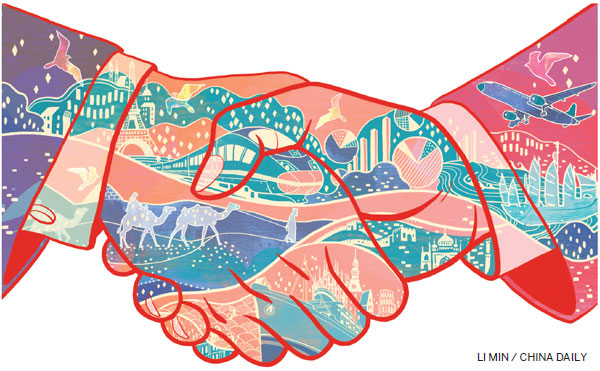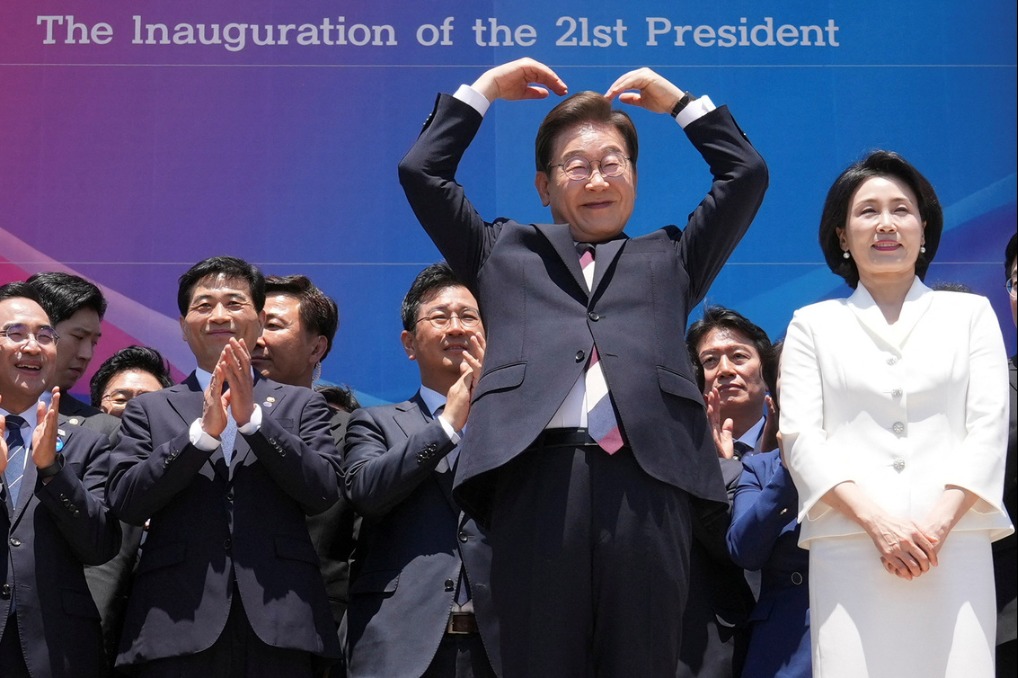Up-and-coming economies can boost world, IMF says


Emerging-market and developing economies are expected to continue to lend momentum to global economic growth, and their ramped-up structural reforms will speed the pace and deliver more results, the International Monetary Fund has said.
The group of the emerging-market and developing economies, defined by the 189-nation global lender to include all those that are not classified as advanced economies, has 155 members, including all the BRICS countries, namely Brazil, Russia, India, China and South Africa.
In its latest quarterly update to the World Economic Outlook (WEO), the IMF, citing factors such as rising trade barriers and increasing geopolitical tensions, has further downgraded global growth to 3 percent for 2019, 0.3 percentage point lower than its April forecast, the slowest pace since the global financial crisis in 2007.
While growth of advanced economies is projected to slow to 1.7 percent in 2019 and 2020, growth in the emerging-market and developing economy group is projected to bottom out at 3.9 percent in 2019, rising to 4.6 percent in 2020, and 4.8 percent in 2024.
This means the group remains the main engine of the world economy, according to the outlook.
"About half of this is driven by recoveries or shallower recessions in stressed emerging markets, such as Turkey, Argentina, and Iran, and the rest by recoveries in countries where growth slowed significantly in 2019 relative to 2018, such as Brazil, Mexico, India, Russia, and Saudi Arabia," the October WEO said.
The outlook trimmed growth projections for China, whose economy is expected to grow at 6.1 percent this year, 0.1 percentage point lower than the July prediction. The growth downgrade reflects not only escalating tariffs but also slowing domestic demand following needed measures to rein in debt, according to the IMF report.
Also, for idiosyncratic reasons, in a few major economies, including India, Brazil, Mexico, Russia and South Africa, growth in 2019 is sharply lower than in 2018, but is expected to recover in 2020, it said.
"At 3 percent growth, there is no room for policy mistakes and an urgent need for policymakers to support growth," Gita Gopinath, economic counselor and director of the Research Department of IMF said on the release of the WEO on Oct 15.
The outlook makes a strong case for a renewed structural reform push in emerging-market and developing economies, noting that reform efforts in governance and five market regulation areas, namely, domestic and external finance, international trade, labor and product market regulations, could deliver "sizable output gains" in the medium term.
For a typical economy, major simultaneous reforms across those areas could increase output by more than 7 percent over a six-year period. That would increase annual GDP growth by more than 1 percentage point and double the average current speed of income-per-capita convergence to advanced economy levels from about 1 percent to more than 2 percent, according to the WEO.
It pointed out that concrete actions to improve governance and access to credit by firms are often important steps to remove binding constraints on growth and amplify reform gains.
It also said that the appropriate sequencing and timing of reforms matters, as reforms deliver larger results during good times and when good governance is already in place.
The IMF said significant reformers across the five market regulation areas over the past decades have included, among others, China, the Philippines, Bulgaria, Hungary, Argentina, Peru, South Africa and Uganda.
The IMF's sister lending institution, the World Bank, has reported that a host of developing economies and emerging markets have reported significant progress in market regulatory reforms, though efforts of such reforms varied in different countries.
In its latest Doing Business 2020 report, which traces how the world economies are implementing reforms to encourage efficiency and support freedom to do business, the World Bank listed Saudi Arabia, Jordan, Togo, Bahrain, Tajikistan, Pakistan, Kuwait, China, India and Nigeria as the top 10 economies that improved the most on the ease of doing business.
Contact the writer at huanxinzhao@chinadailyusa.com































